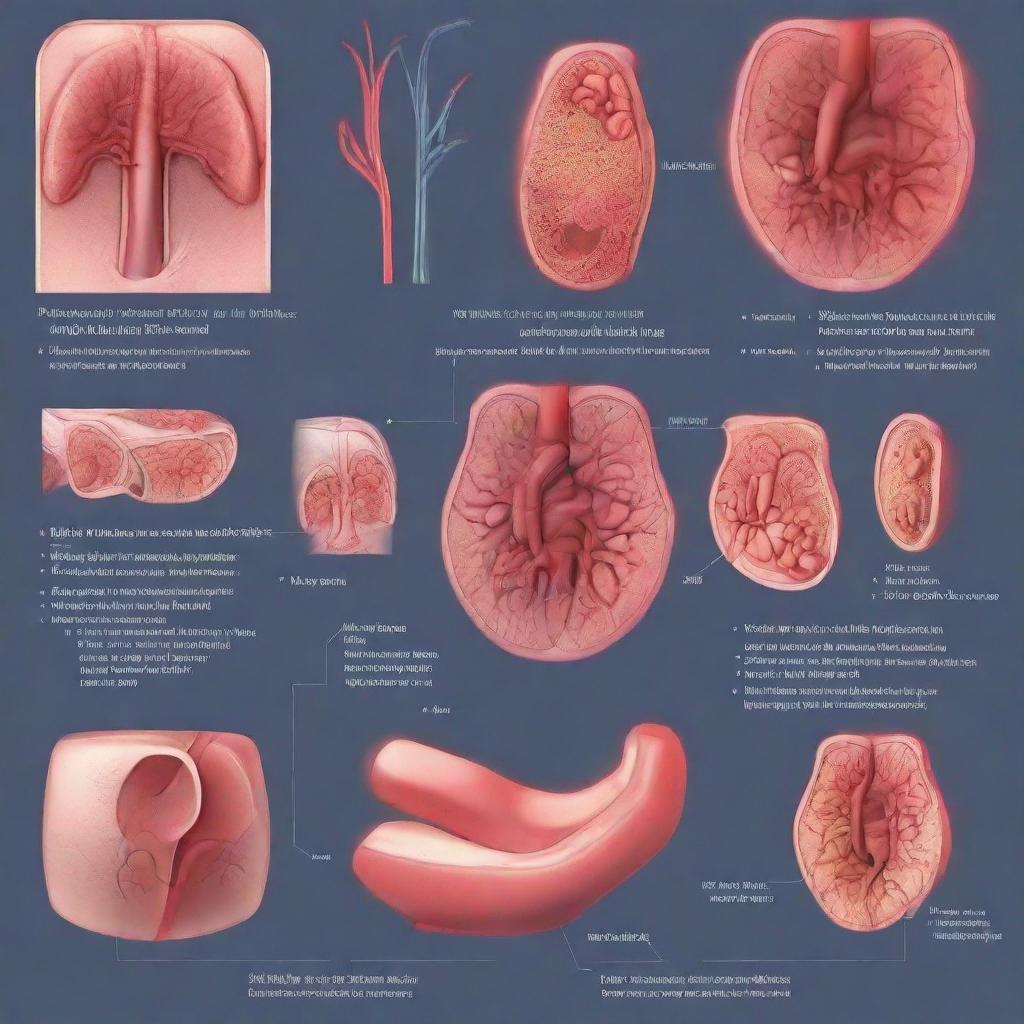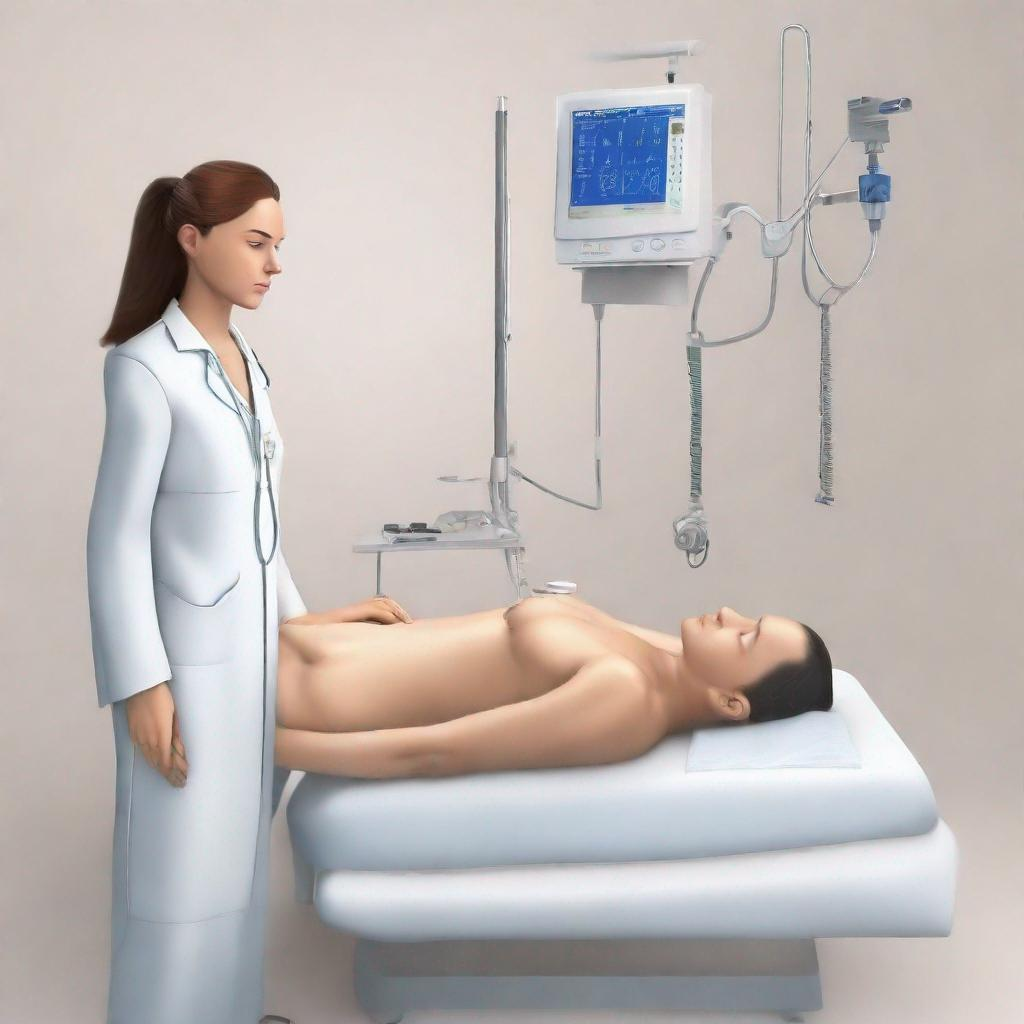## Nephritis and Nephrosis: A Comprehensive Guide
### Introduction
Nephritis and nephrosis are conditions that affect the kidneys. The kidneys are vital organs that filter waste products from the blood and produce urine. When the kidneys are damaged, they can no longer perform these functions properly, which can lead to a buildup of waste products in the blood and other health problems.
**Symptoms of Nephritis and Nephrosis**
The symptoms of nephritis and nephrosis can vary depending on the severity of the condition. Common symptoms include:
– Edema (swelling) in the face, hands, feet, and legs
– Proteinuria (protein in the urine)
– Hematuria (blood in the urine)
– Foamy urine
– Fatigue
– High blood pressure
– Nausea and vomiting
### Diagnosis
To diagnose nephritis or nephrosis, your doctor will perform a physical examination and ask about your symptoms and medical history. Your doctor may also order one or more of the following tests:
– **Urinalysis:** This test checks for the presence of protein, blood, and other substances in your urine.
– **Blood test:** This test checks for the levels of creatinine and other substances in your blood. Creatinine is a waste product that is filtered out of the blood by the kidneys.
– **Kidney biopsy:** This test involves taking a small sample of tissue from your kidney to examine under a microscope.
### Prevention
There is no sure way to prevent nephritis or nephrosis. However, there are some things you can do to reduce your risk of developing these conditions, such as:
– Getting vaccinated against measles, mumps, and rubella (MMR)
– Getting vaccinated against hepatitis B
– Avoiding exposure to toxins, such as lead and mercury
– Managing your blood pressure and cholesterol levels
– Eating a healthy diet and getting regular exercise
### Treatment
The treatment for nephritis and nephrosis depends on the severity of the condition. Treatment options may include:
– Medications (diuretics, blood pressure medications, immunosuppressants)
– Dialysis: This is a procedure that removes waste products from the blood when the kidneys are not working properly.
– Kidney transplant: This is a surgical procedure to replace a diseased kidney with a healthy kidney from a donor.
### Complications
Nephritis and nephrosis can lead to a number of complications, including:
– **Renal failure:** This is a condition in which the kidneys are no longer able to function properly. Renal failure can be life-threatening.
– **Electrolyte imbalance:** This is a condition in which the levels of electrolytes (sodium, potassium, and chloride) in the blood are too low or too high. Electrolyte imbalance can cause a number of health problems, such as muscle cramps, nausea, and vomiting.
– **Anemia:** This is a condition in which the body does not have enough red blood cells. Anemia can cause fatigue, weakness, and shortness of breath.
– **Bone disease:** This is a condition in which the bones become weak and brittle. Bone disease can increase the risk of fractures.
### Body Parts
**Kidneys** are the organs that filter waste products from the blood and produce urine.
**Nephrons** are the functional units of the kidneys. Each nephron consists of a glomerulus and a renal tubule.
**Glomeruli** are small clusters of blood vessels that filter waste products from the blood.
**Bowman’s capsule** is a cup-shaped structure that surrounds the glomerulus. The Bowman’s capsule collects the filtered fluid from the glomerulus.
**Renal tubules** are small tubes that extend from the Bowman’s capsule. The renal tubules reabsorb water and other nutrients from the filtered fluid and secrete waste products into the urine.
### Conditions
**Nephritis** is a general term for any condition that causes inflammation of the kidneys.
**Glomerulonephritis** is a type of nephritis that affects the glomeruli.
**Interstitial nephritis** is a type of nephritis that affects the interstitial spaces between the nephrons.
**Pyelonephritis** is a type of nephritis that affects the renal pelvis, which is the funnel-shaped structure that collects urine from the kidneys.
**Nephrosis** is a condition that causes damage to the renal tubules.
**Minimal change disease** is a type of nephrosis that is characterized by minimal changes in the appearance of the renal tubules under a microscope.
**Focal segmental glomerulosclerosis** is a type of nephrosis that is characterized by scarring of the glomeruli.
### Synonyms
– Bright’s disease
– Renal failure
– Kidney disease




